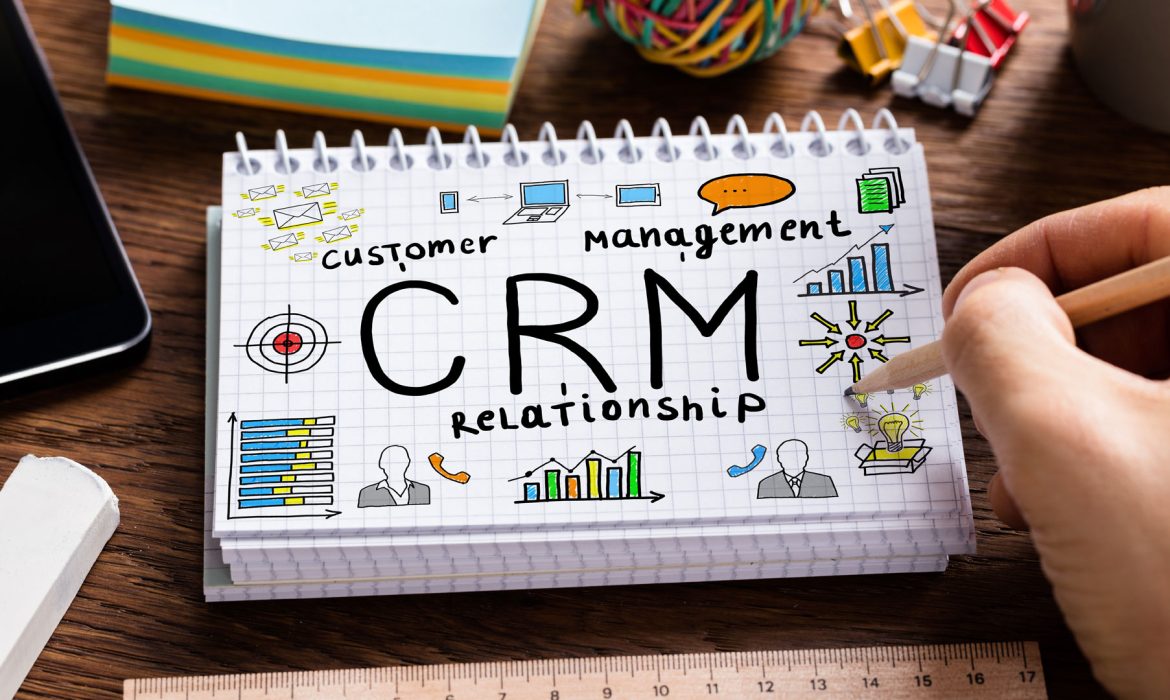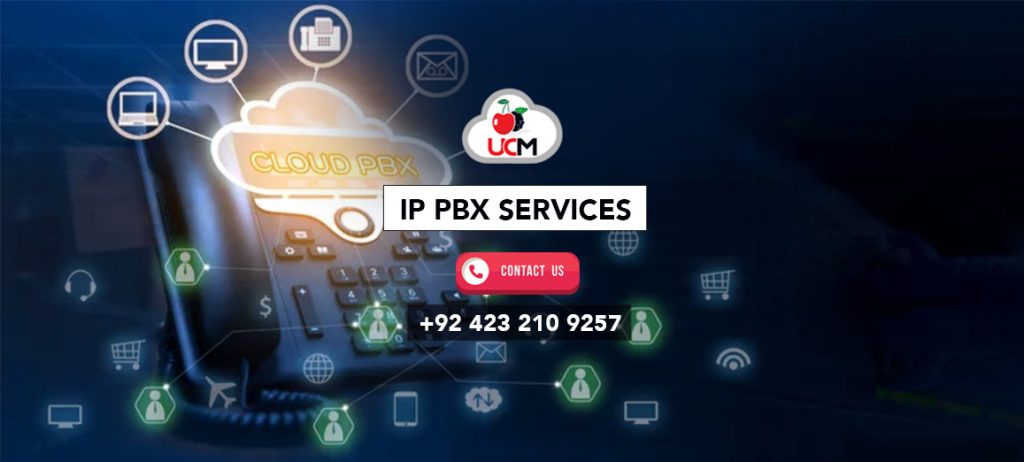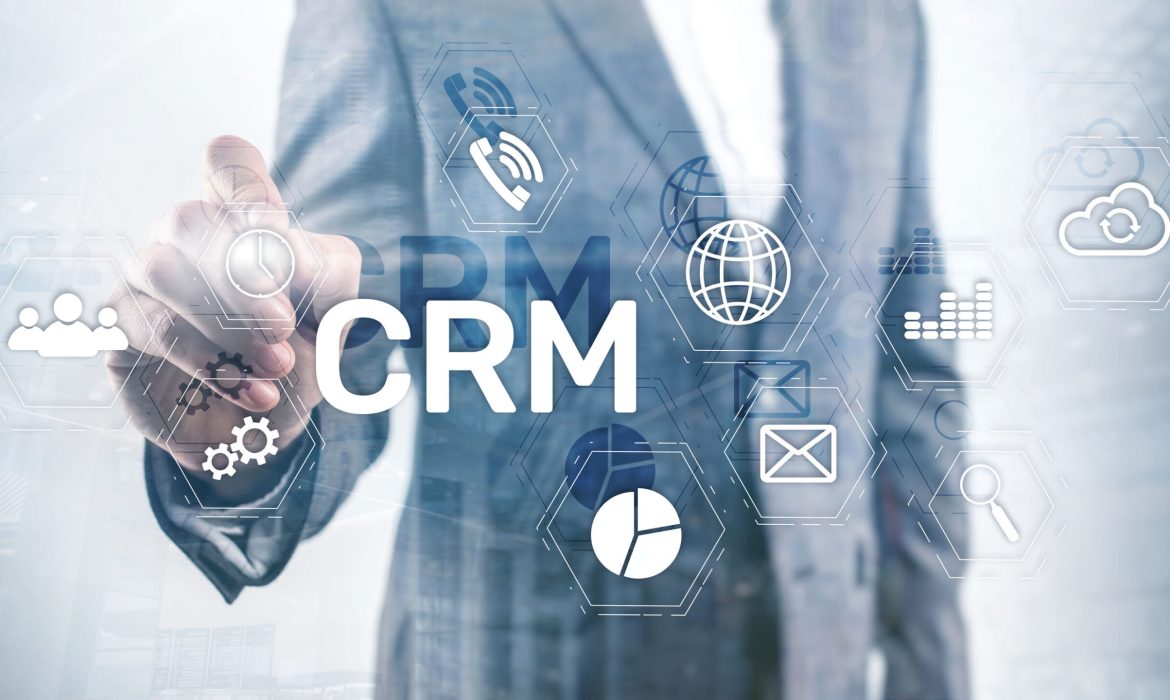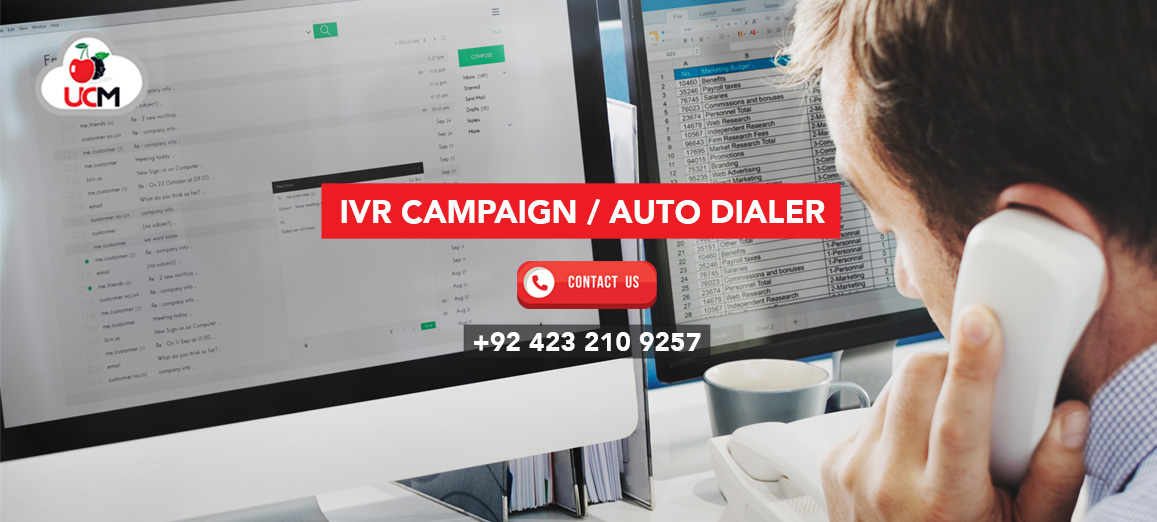Top-Tier Tactics for Thriving Customer Relationship Management
Why is Customer Relationship Management Important?
Dealing with a diverse customer base is challenging, as a business is nothing without its customers. Moreover, keeping the existing customers is cheaper than acquiring new ones. However, loyalty is difficult to measure, define, and achieve. It may take years to design process Customer Relationship Management Systems, perfect tools, or establish a top-tier team to maintain customer trust and satisfaction, especially management of high-value and high-risk customers or those in between. A can enable you to manage your business and meet each customer’s unique needs. After discussing the basics, dive deeper into the tactics to streamline resource allocation and enhance personalization.
What is Customer Relationship Management?
It can be described as a set of practices and processes to manage your business relationships with customers. Meanwhile, it also includes every interaction between a business and its existing or potential customers, starting with the brand’s first interaction. Tracking leads, sales, and opportunities, managing and organising past communications, establishing strategies, and running effective marketing campaigns are all part of building stronger relationships beyond focusing on offering personalised interactions and understanding customer needs. It also means building customer trust and loyalty in your business to make them feel valued and recognised at every touchpoint.
How Can A CRM System Streamline Customer Relationships?
In the business world, a CRM system is computer software that is a fundamental sales and marketing tool for businesses. Global CRM market revenue on the CRM market was 25% in 2018. Beyond being used as a technology or system, it can also be taken as a business approach to keep customers in view while making business decisions. CRM solutions as a tool automate your sales and marketing processes, help manage and organize business data from all sources, and streamline your business relationships. Your sales and marketing teams can run personalised campaigns to increase sales.
How to Measure the Efficiency of Personalized CRM?
Personalised interactions strengthen customers’ bonds with a business, leading to repeated business. Meanwhile, it also reduces the chance of missing opportunities. By understanding customers’ unique preferences throughout the journey, you can act immediately to avoid losing sales, which leads to impactful customer interaction. In addition, you can hardly improve your CRM efforts if you cannot measure them, so track the following metrics.
- Net Promoter Score: Companies can evaluate customer loyalty and satisfaction by asking how likely they will suggest or recommend your products or services to others.
- Customer Retention Rate: You can also track customer engagement and loyalty within a specific period. It also means that a higher retention rate shows effective personalisation.
- Conversion Rates: After running personalised campaigns, sales and monitoring teams can evaluate the percentage of leads converting into sales opportunities or regular customers.
- Customer Lifetime Value: CLV is another important strategy that evaluates the total revenue a customer can bring to your business over its lifetime. High CLV rates mean that your personalisation strategies are working.
- Feedback & Surveys: Your teams can also directly ask customers about their experience with your brand. This will further give you insights into your strategies and areas needing improvement.
- Engagement Metrics: Businesses can evaluate the duration, frequency and depth of interaction on their digital platforms. Additionally, more engagement indicates effective personalisation.
- Revenue Tracking: It is important to track revenue from customer segments because your CRM is effective if personalised segments show progress.
- Churn Rate: Companies should examine how many customers have left their business, as a lower churn rate is a positive indication for your business.
Top Tactics to Improve Customer Relationship Management with CRM System
1. Track Customer Interaction & Behaviour
Knowing your audience is the most important thing about a good sales and marketing strategy. An effective CRM system can help you understand how prospects and customers find your service or products and interact online. It allows you to collect significant data about new and potential customers and know them much better.
2. Offer Loyalty & Reward Programs
Many successful businesses or big corporations offer rewards or cash-back programs to promote customer loyalty. For instance, you can give your customers a discount on a product and ask for their review to make the customer experience perfect. Moreover, introducing a digital currency can motivate customers to collect digital points after making a purchase. This will further encourage them to return.
3. Run Tailored & Targeted Marketing Campaigns
To improve your customers’ behaviour and interactions, you should start by implementing the first strategy. Once you achieve that goal, you must become more proactive and utilise this data to run targeted marketing campaigns. You can create effective customer relationship marketing campaigns through personalised emails and customer segmentation.
4. Cleaning & Deduplication of Business Data for Enhanced Marketing
You should ensure your teams communicate smoothly while interacting with customers. A little mistake can harm your business. Luckily, you can avoid common mistakes by investing in the right tool. For instance, a CRM system can unify all your data into a single system to avoid duplication. Meanwhile, it lets you easily manage, cleanse or regulate data, benefiting from up-to-date information.
5. Prepare Detailed Reports on the Customer Base
CRM system lets you get detailed internal and external reports on your business performance. It is an efficient way to understand business health and campaign performance. You can also export and use your business data whenever and wherever needed. This data also helps align your sales and marketing efforts so you can easily understand personal and professional relationships.
6. Ensure Collaboration & Customer Service Integration Through Automated Tools
Another important thing to consider is team collaboration. Your teams should work in cooperation to achieve common business goals. This close collaboration is critical to improving the customer service experience. Digital tools like CRM automate various tasks and ensure optimal performance.
Final Thoughts
Suppose you visit your favourite café with a barista; remember your name and what you like to eat. That’s the power of personalised service that keeps customers intact and loyal to a brand. Customer relationship management follows the same principle, recognising the significance of high-value customers and their unique preferences. Thus, businesses need to apply top tactics to keep customers coming back. CherryBerry UCM can help you as a reliable service partner to enhance personalisation. Contact us today to overcome the challenge of maintaining strong relationships.
Hosted PBX: The Definitive Guide to Everything You Need to Know
Why Invest in Hosted PBX Systems?
The global PBX market has experienced significant growth in recent years, especially after drastic changes in business communication needs. This is why Hosted PBX Systems are becoming more prevalent to maintain agile communication and facilitate remote working. Increased reliability, advanced features, cost efficiency, and greater flexibility encourage companies to move from legacy phone systems to hosted solutions. Gone are the days when businesses made large initial investments in equipment and maintenance. Now, they can optimise their business internal and external communication and enhance operational efficiency without compromising service quality. Let’s learn everything about these valuable systems.
What are Hosted PBX Systems?
To learn about the functionality of advanced hosted systems, legacy systems must be studied. A telephone network that a company uses to communicate internally or externally is an example of a PBX. Another terminology, ‘on-premises’, is commonly used for PBX, which refers to the hardware placed inside the office premises. Hosted systems offer the same features and services as on-premises PBX with little difference in the installation. These systems work in the cloud, which means you don’t need any hardware in the office, reducing installation and maintenance hassle as third-party service providers maintain all this off-site, providing you with connection and other benefits.
How Do Hosted Systems Work?
They use a cloud infrastructure wherein all phone calls are handled on the IP network. Traditional PBX systems transfer the voice traffic over PSTN (Public Switched Telephone Network). Meanwhile, the latest systems are powered by the internet (VoIP), and hybrid systems (a combination of both) are also making their place in the market. Hosted systems enable your employees to make and receive calls over the internet through softphones or IP-enabled devices. Cloud-based Hosted service providers keep the servers in their place and allow companies to benefit from the service without worrying about upgrades and maintenance.
How Hosted Systems Are Different from Traditional PBX Systems?
- Traditional PBX: On-premises or analogue systems are examples of conventional PBX systems. Usually, these systems run on physical hardware like copper phone wires in the office. The main difference between legacy and the latest systems is in the way they work. Legacy systems connect to PSTN or analogue phone lines, while advanced VoIP systems send voice data using broadband connections. Likewise, they offer limited calling features and fewer integration options. Additionally, hosted systems are quicker and easier to scale than legacy systems. Conventional PBX also requires high initial set-up costs and expert IT staff for maintenance.
- Hosted Systems: The service providers maintain the complete infrastructure of hosted systems. They manage updates, upgrades, maintenance, and tech support while companies only pay subscription fees to access the features. These systems need an active internet connection to transmit voice data. Increased flexibility, cost-effectiveness, and effortless scalability are a few benefits that have made cloud PBX solutions popular for all-sized businesses. Meanwhile, you only pay for the features you use, leading to significant cost savings.
Why Some Businesses Still Prefer Traditional PBX Systems?
These systems suit established and larger companies than small or medium-sized companies. For instance, larger or established businesses have professional IT teams to manage maintenance or extra office duties. Meanwhile, they also have enough budget to manage setup and infrastructure costs. Traditional systems are also viable options for those businesses that employ only in-house teams and want more control over their data. Moreover, some companies fear change, so they stay with the legacy system. However, change has become inevitable to facilitate remote work and save costs.
What are the Advantages of Hosted Phone Systems?
1. Give Access to Advanced Features
You have limited features and a basic business phone system if you still use a traditional one. For instance, you can transfer calls to other extensions or benefit from hold, mute, and speed dial. Investing in Cloud PBX solutions gives you access to enterprise-level phone system features like conference calling, automatic call recording, auto attendant, multi-level IVR, call routing, and reporting and analytics.
2. Offer Better Scalability & Flexibility
Another important benefit of hosted systems is that they are more flexible and scalable than traditional PBX systems. This is specifically true regarding integration capability with other tools and apps, you can easily integrate a virtual PBX system with third-party solutions CRM systems. It helps automate workflows and streamline business communication. Moreover, you can quickly add numbers and users by requesting additional capacity from the service provider. Conversely, adding new lines is time-consuming and expensive in the traditional system.
3. Requires Less to No Maintenance
The biggest challenge of the traditional system is maintenance. Businesses have to maintain the entire system themselves. That means you should have an expert IT team to manage maintenance hassles and other technical issues. On the other hand, your hosted PBX service provider is responsible for managing system upgrades, maintenance, and technical issues off-site.
4. Facilitates Remote Working
Hosted systems are cost-efficient and reliable solutions. As remote working has become an important aspect of the job, companies can hire team members to work remotely from anywhere without being tied to an office location. You can connect your in-house and remote teams through the internet connection, which is particularly beneficial for companies with a distributed workforce. They can collaborate on company issues to stay on the same page.
Do Companies Need Any Equipment to Set Up Hosted Systems?
You just need a broadband internet connection, compatible handsets, and a router to set up hosted systems. It is also essential to know how many extensions you need. Moreover, you can upgrade your current internet supply for higher bandwidth and faster speeds. Cloud availability and lack of equipment are appealing factors for investing in hosted systems. You can manage your business with an internet connection and handsets. Meanwhile, your service provider will set up all equipment and manage your needs off-site.
Closing Thoughts
Finally, it is clear now that modern businesses are evolving towards more flexible and scalable solutions. Thus, companies should choose phone systems that grow with their business needs. Implementing VoIP IP PBX Systems Services is a cost-efficient solution, but selecting the right system that aligns with your needs is also essential. Get CherryBerry UCM expert guidance to access a reliable system to achieve your business communication goals.
Unlocking Superior Customer Service with CRM: Proven Strategies for Success
What is Customer Service with CRM?
The magic business formula to make every customer feel like your favourite one lies in offering a personalised customer experience. This is only possible when all your business will be well managed and organised so you can achieve your business goals keeping your customers happy and satisfied. Customer Service with CRM is not only great for your customers, but it is also a game-changer solution for your business. CRM systems give you a unified view of customer data and offer actionable insights to win and retain more customers. Let’s delve deep into the best-proven strategies to get the most out of your CRM system.
Define Your Goals for Customer Service with CRM
Firstly, a business should define clear goals (specific, measurable, achievable, relevant & time-bound) where it stands now and where improvements are required. You should know what your business will achieve with a customer relationship management system. For instance, a few common goals are to increase sales in the next quarter, improve customer satisfaction score by 12% and maximise customer retention. CRM improves visibility to customer data so you can access a more targeted audience to achieve sales goals. Likewise, you can provide tailored customer interactions to increase customer retention. Meanwhile, timely resolutions and personalised interactions with CRM data can help enhance customer satisfaction scores.
Embrace Technology for Effective Customer Service with CRM
At present, CRM has become an essential tool for enterprises to keep track of customer interactions and information. It enables your sales, customer service and marketing teams to treat each client/customer personally and meet their needs efficiently. Businesses can also leverage the potential of chatbots and virtual assistants that offer round-the-clock support and answer general questions. Moreover, through social media monitoring, companies can see customers’ online reviews and promptly respond to their concerns with timely support. This way, they can create smoother and more efficient experiences for their valued customers.
Customer Experience & Feedback Solution
Reviewing customer feedback is a great tactic to improve customer service experience. You can collect real-time customer feedback and use these valuable insights to create a constant improvement cycle. This will further help to address customer concerns or suggestions promptly while real magic happens when you use customer feedback to bring meaningful improvements in services, products and processes. Moreover, personalisation is crucial to leave a lasting impression and improve business relationships. CRM can also be used as a future predicting tool to assist your teams with customer preferences beforehand.
Training & Development of Your Teams
Another important strategy for superior customer service is offering thorough training programs. This will educate your staff including customer support, sales and marketing teams on how to use the CRM system efficiently. Training and development programs also ensure that support and resources remain available to address customer questions and challenges your teams face. Meanwhile, role-specific training sessions give them insights into the functionalities related to their responsibilities. User manuals, video tutorials and online courses increase your team’s performance and equip them with the skills and confidence needed to meet customer expectations.
Simplify User Interface & Foster A Culture of Data Quality
You must invest in a CRM technology that contains a user-friendly and easy-to-navigate interface. Companies can avoid unnecessary steps and streamline workflows to make their system more efficient. For instance, some CRMs have customisation facilities to let you design a user interface with a clear layout, easily accessible features and logical navigation. Likewise, minimising steps or many clicks to perform certain tasks can streamline workflows. Meanwhile, companies must also emphasise data consistency and accuracy in the CRM system. They can encourage teams to regularly update customer information and take ownership of their data entry. Accurate data improves decision-making and overall success.
Synchronising CRM With Project Management
Streamlining communication among sales, marketing and customer service teams is critical to stay on the same page about business matters. You can integrate a CRM system with project management tools to increase operational performance. This synchronisation seamlessly connects your project details and customer data offering a detailed view of project status and client information. It also lets your team members access client historical records, deadlines and project requirements in one place. Businesses can benefit from a unified approach to engage clients and execute projects for a more proactive and organised workflow. You can review and adjust integration for consistent improvement.
Improve Resolution Time & Project Competence
A faster response time and first call resolution rate are essential to maintain a competitive edge. Your customer service teams can streamline communication and address customer needs promptly and with greater accuracy through CRM. This ensures everything runs smoothly improving customer service and project competence. Meanwhile, a well-integrated CRM system also promotes real-time collaboration among your teams, which is necessary for enhanced service delivery and timely adjustment. In addition, personalised interactions using CRM data make your customer feel valued. All this leads to business excellence and maintaining customer loyalty.
Make The Right Choice While Choosing CRM System
Whether aiming to improve client engagement or increase your business sales performance, selecting the right CRM system is essential to streamline customer service operations and personalised interactions through tailored strategies. You should choose the CRM system that aligns with your unique business needs and workflows. This system automates various tasks and helps with lead tracking and conversion. Doing so ensures your customers get support whenever they need it. This superpower for managing customer flow also leads to a more satisfied customer experience. It is especially critical for enterprises where every customer interaction matters.
Final Takeaways
Customer Service with CRM is a smart move for small and established companies looking to provide an enhanced customer service experience. The right CRM system for your business is the one that fits your current requirements and scales with your needs. Adaptability and personalisation can be your forefront selection criteria for achieving your customer relationship goals. By applying the strategies mentioned above, your teams can transform customer service operations. Ready to invest and leverage the latest CRM tools to streamline your customer data? Contact CherryBerry UCM to get the right tool to start achieving the benefits.
The Advantages of Implementing an Automated Calling System for Your Business
How Automated Calling Systems Improve Your Calling Operations?
Are your sales and marketing teams still initiating outbound calls manually? If so, do you know they spend significant time dialling and experiencing unproductive numbers? What if you make thousands of calls daily to achieve specific goals? With this rate, a company would depend heavily on many agents to scale. Thankfully, the Automated Calling System can address many of these woes. Your teams can invest this valuable time in perfecting the sales process and closing more deals. Let’s delve deep into the benefits of this technology, but start with the basics.
What is an Automated Calling System?
This innovative business software automates phone calls and answers inbound calls. Moreover, it allows you to make outbound calls without call centre agents or deliver customised voice messages. You can use an auto-calling system to schedule or record voice and video conference calls, making it an ideal communication solution for businesses. Meanwhile, companies can place hundreds, even thousands of calls or send prerecorded messages in one go to leads, prospects, and customers through this software that automatically interacts with humans. These systems have become quite popular nowadays and do not need a huge investment or technical team. Automated systems can also send emergency messages or event reminders to the entire contact list.
What are Different Calling Systems?
The difference depends on whether a business makes or receives customer calls. These systems are basically of three types: inbound, outbound, and hybrid auto-calling solutions.
1. Outbound Calling Systems
These automated phone calling systems are specified to automate sales call processes. They can be cold calls – which customers didn’t expect or a follow-up call already scheduled and expected. For instance, the power dialling mode lets you dial numbers from the contact list automatically. Likewise, a click-to-call feature dials the number by clicking the button, leveling up your outbound calling automation process.
2. Automated Inbound Calling System
When customers or prospects are curious about your products or services and place calls, it is called an inbound call. Automated systems for inbound calling enable you to manage incoming calls efficiently, guide customers through recorded messages around the clock, or increase response time.
3. Hybrid Auto Calling Systems
What if you get the calling system that offers the best of both worlds? This is what hybrid automated systems are designed for. For instance, many CRMs automate both inbound and outbound calling processes. They can divert inbound calls to better sales reps, improve your sales, and track customer concerns at any point in the sales process.
How Do Automated Systems Work?
The automated system contains features that support inbound calling operations and outbound call management. Companies can record customised and unique audio messages considering customer pain points. Callers can choose their desired menu options to resolve their issues quickly. The automatic callback option enables customers to request a return call from the sales rep at a later time. However, the auto messaging system makes a call and plays a recorded message or connects the caller to an agent after detecting a human voice. Integrating CRM with custom phone menu systems also allows lead segmenting, scoring, and tracking.
Which Features Enhance The Efficiency of Auto Calling Software?
- Customisable Caller ID: This feature allows you to customise your caller ID after verifying your phone number. It will help your customers know about your business.
- Personalized Business Greetings: Companies can create customised greetings showing their brand image to welcome each caller.
- Voice Messages Broadcasting: Automated systems work without agents, empowering businesses to make bulk calls to the entire connect list to convey messages.
- Call Scheduling: Your teams can schedule each outbound call by setting a particular date and time to achieve their campaign goals.
- Voicemail Detection: VoIP Auto-calling software automatically replays the message after detecting a voicemail and answering machine. It routes only connected calls to agents.
- Voicemail to Text: Sometimes, the number may not have a voicemail option. In this case, the system automatically sends the text message.
- Automated Answering Services: Businesses can also record customised messages, keeping in view common customer preferences for the quick resolution of issues.
- Routing Rules: Companies can set routing rules based on help desk or CRM data. It lets them provide seamless customer service and benefit from automated lead distribution. Time-based routing considers working hours, while skill-based routing follows agent scores.
- Advanced Features: Many advanced features streamline the process of inbound and outbound calling. They include video conferencing, call and meeting recording, real-time transcriptions, automated callback, surveys, and call transfers.
- Real-Time Reporting: The live dashboard in the automated system with real-time reporting and monitoring support provides companies with useful insights. They can evaluate agent performance, average response time, and more.
Benefits of Using Auto Calling For Your Business
If you are confused about whether automated calling is effective for your business, these points may help you make the right decision.
1. Create Your Business Professional Image
It is important to note that customer interaction with agents is a deciding factor for success, as it can ruin your customer experience. An overwhelming routine can create problematic situations. Automated systems like IVR allow customers to self-service or route to live agents for complicated issues. It contributes to increasing your business’s professional image and brand reputation.
2. Cost-Efficient Solution
Automation of initial calling and callback reduces the demand for call centre agents. Hiring multiple agents to manage bulk incoming and outgoing call volume requires high financial costs. This includes recruitment costs, training costs, salaries, etc. Thus, investing in an automated system is a wise decision for modern enterprises.
3. Support Round-the-clock Support
You may receive hundreds or even thousands of incoming calls every day, which may consume your team time. Directing and filtering calls manually can also lead to increased hold times and leave customers unhappy. Auto-attendant and IVR ensure round-the-clock service.
4. Improves Business Communication
Companies can also utilise the potential of this system to streamline communication and collaboration among their teams. Likewise, they can answer customer queries through pre-recorded messages. Customers can also route themselves to live agents to resolve complex problems.
5. Lead Nurturing
The ACD feature in the automated system allows sales and marketing teams to follow up seamlessly and maximise conversion rates. They can generate detailed reports and integrate the system with other apps to increase performance.
Final Thoughts
Indeed, an Automated Calling Service in Lahore is what you need to improve your business communication either with your team or your customers. However, the selection of the right system can be tricky, as you should choose the one that is reliable and affordable. CherryBerry UCM can provide you with expert assistance in choosing a versatile system. Contact us right away to benefit from advanced technological solutions to streamline business communication.
Boosting Agent Productivity with the Power of Auto Dialers
Importance of Auto Dialers for Call Centers
Whether working in sales, marketing, or customer service departments, call centre agents are considered the frontline soldiers in many industries. Their performance directly impacts your service quality, business productivity, and overall growth. They are expected to prepare a list of numbers to call and dial them. Sometimes, the call connects at the first attempt; mostly, they have to listen to busy tones, leave voicemails, or experience disconnected calls, even several times. It could be more productive and easier for your agents if these mundane tasks are already done. Don’t stress out about hiring extra staff; just leave this manual work on Auto Dialers.
What are Auto Dialers?
Auto dialers bring efficiency in all aspects of outbound calling, from dialling to screening out unproductive calls like disconnected calls, answering machines, and busy signals. This system automates the dialling process to help your sales and marketing agents. Upon connecting with the right person, the system automatically plays an IVR or transfers the call to the most available agent. Moreover, outbound calls are the best choice to manage large outbound campaigns. Likewise, using an auto-dialer for outbound calling eliminates the need to manually dial each number from the contact list, increasing efficiency. Additionally, it automatically keeps calling the numbers from the list in sequence without manual intervention.
How Does an Auto Dialing System Work?
The cost of a simple auto dialling system is economical while it is also effortless to install. You need four things to set up a basic system: a voice modem, software, and a headset. The main use of a voice modem is to record or play audio on a phone line, while a desktop computer can facilitate two to four internal modem cards with each connected to one phone line. It also means that if you have more modems, your computer can be used to make more phone calls at once. Additionally, Auto-dialling Systems are also connected to VoIP or PSTN.
How Voice Detection Technology Improves Efficiency?
The voice detection feature in this software can detect human voices or answering machines. When the system places a call, and it is picked up within 25 seconds or four rings, the chances of encountering an answering machine are higher. Upon connecting, the software analyzes the first spoken word. For instance, when a human answers the call, the initial response contains short words followed by a break. The software transfers the call to the available agent or plays a pre-recorded message. Meanwhile, when it detects unproductive numbers, the system automatically skips such elements and moves on to the next call, saving your agent’s idle time.
How is an Auto Dialing System Beneficial For Your Business?
1. Time-Saving Solution
Every minute matters in business today, as time is money. Outbound campaigns are time-bound, but manual dialling takes time, while unattended calls also waste your agent’s time. Auto-dialling systems automate the entire dialling process from a predefined list and do not connect unattended calls (answering machines, busy tones, or unserviceable numbers) to the agents. Moreover, the system automatically detects the available agent during peak hours, reducing missed calls.
2. Increases Agent Talk Time
Another benefit of auto-dialling software is reducing idle time. When a customer answers a call, the system connects it to the available sales rep. Meanwhile, with an Automated Call center auto dialer , they can invest their time and energy in converting more leads into loyal customers. This ultimately increases productivity and they can get maximum business benefits.
3. Facilitate Better Lead Conversions
Auto dialling systems understand the role of time in communicating your brand message, allowing you to change the time of messages based on recipient working hours, time zones, and availability. When customers receive the message at the right time, they can better think about your products and services.
4. Allow Running Multiple Marketing Campaigns
Companies can run multiple marketing campaigns and monitor individual campaigns with auto-dialers. They can easily track the number of missed, attended, and ignored calls. This information allows you to make better decisions about your outbound calling campaigns.
5. Promote Real-Time Monitoring
These systems not only track sales and marketing campaigns but also monitor live calls. They record outbound calls, allowing companies to view the record to measure your agent’s performance. Moreover, business administration can understand their customer’ needs and identify improvement or coaching needs. New agents can use this data to understand the nature of their jobs.
Which Dialing Mode is Best For Your Teams?
Different auto-dialling systems help you achieve different outbound campaign tasks, from improving lead conversion rates to agent productivity. Here are a few common auto-dialling modes available:
1. Preview Dialer
They provide the data of the next lead or customer in the outbound calling list before dialling the number. Once your sales or marketing agents end a previous call, they can check the customer or lead detail to decide whether to contact or skip this number. This way, your agents have enough time to prepare for the interaction and ensure conversion with personalised conversation. Moreover, it is incredibly useful for your teams to deal with sensitive cases regularly.
2. Voice Broadcasting
Using this dialer, companies can deliver prerecorded voice messages to multiple recipients in just one go. They can utilize this dialer for customer surveys, emergency notifications, and reminders. Likewise, service-oriented businesses like banks can inform customers about downtime or automate payment reminder processes.
3. Progressive Dialer
It works like a preview dialer by providing agents access to customer information before each call. Besides automating the dialling process, the progressive dialer automatically dials the next number in the list once the previous call ends. However, agents can’t skip any call while utilising the progressive dialling mode. Still, the system detects and filters unproductive numbers and moves on to the next number.
4. Predictive Dialer
Investing in a predictive dialling system is a great choice to take your agent’s efficiency to a new level. It dials several calls at once, but don’t worry; your agent doesn’t have to handle more than one call. This is because it can predict the agent’s availability for the next call. However, it does not give agents time to read customer information, so it may not be suitable for complex calls.
Wrapping Up
Dialling numbers manually is tiring, stressful, and time-consuming. Suppose a solution that weeds out answering machines, busy signals, or invalid numbers without disturbing agents and connects only answered calls to the agents. Sounds great? The Best Auto dialer services in Lahore allow agents to invest their efforts in making campaigns successful instead of waiting idly for connecting calls. Need a reliable auto-dialling system for your call centre? Don’t forget to contact CherryBerry UCM for expert assistance.
5 Signs Your Business Needs An Outbound Call Center Software
Why is Outbound Call Center Software Important?
Nowadays, it becomes hard to stand out in a competitive industry where customer experience decides your success. Meanwhile, outbound calling has become essential to business processes, allowing companies to expand their customer base to increase sales. This significantly increases the success rate of your sales and marketing campaigns. However, outdated, inefficient, and costly software adds negative value to your business, so you should have advanced, highly efficient, and affordable Outbound Call Center Software to streamline your outbound communication.
What is Outbound Call Center Software?
It is a cloud-based solution that enables companies to reach prospects and customers easily. For instance, companies have to call leads for telemarketing, market research, fundraising, sales, surveying, and other purposes of outbound call centre operations. Outbound calling software automates various business tasks, while its advanced features, including call recording, reporting, scripting, and monitoring, streamline outbound calling processes. It also helps your sales and marketing teams reach prospects and customers in the least amount of time, lower idle time, and increase customer satisfaction rate. Reaching more customers or prospects means more conversions and revenue.
Important Features of Outbound Software to Enhance the Efficiency of the Sales Team
1. Number Masking
Confidentiality or privacy is one of the most important concerns of your prospects and customers. You can use a number-masking feature to connect with prospects or customers without revealing both identities. It prevents unsupervised conversation or misuse of information.
2. Agentless Auto Messaging
Companies can easily set up automated messaging campaigns like order tracking, appointment confirmation, etc. and send it to the number list to achieve set goals. It frees up your agents’ time, which they can invest in other core activities, leading to enhanced call center efficiency.
3. Remotely Accessible Solution
Cloud functionality makes your Outbound Calling Services Providers for in-house and remote teams. They can deploy and access IVR applications easily. You can even continue your outbound calling processes during emergencies and disruptions without the risk of losing important business data.
4. CRM Integration
You can increase the efficiency of outbound calling campaigns by integrating software with CRM and closing more sales deals. Your sales and marketing teams can access lead or prospect contact information on a dashboard, view interaction history, stay updated about the contact’s stage in the sales funnel, and close deals fast.
5. Scheduled Callback
Outbound calling systems reduce the call abandonment rate, increasing customer satisfaction with scheduled callback features. For instance, if a prospect or customer misses a call, the system records the numbers and dials them automatically to connect customers with agents later. It helps in closing sales deals faster and increases productivity.
6. Multiple Dialling Modes
This feature is especially helpful for call centers that need help with the challenges of low pick-up rates. It allows calling multiple numbers per sales rep, keeping in view the pick-up rate of customers and lower call abandonment rate.
What’s More to Expect From an Outbound Calling System?
7. Call Scripting
Call centres can provide compelling scripts to guide agents through sales and lead nurturing processes. This saves administration time training new agents, increases the first-call resolution rate, and improves customer satisfaction scores. Likewise, automated answers to particular requests can ensure better interaction with minimal training.
8. Call Barging & Whispering
These two features are highly effective in maintaining the Cloud-based outbound call solution. Your agents may need supervisory assistance during complex interactions or sensitive situations. At that time, a long hold or wait time may cause frustration for your client. Call barging and whispering enable supervisors to enter into a conversation or secretly whisper to agents during live calls to provide timely assistance.
9. Multiple Campaign Capabilities
The outbound calling system allows your sales reps to manage multiple campaigns simultaneously. They can automatically resume unfinished campaigns the next day without any issues. Similarly, they can use different auto-dialling modes to make their campaigns successful. For instance, they can use preview dialling to view client information before initiating the call if they are dealing with sensitive interactions. Likewise, if their task is to reach the maximum number of customers, they can use predictive dialling mode.
5 Signs/Reasons Your Teams Need Outbound Calling Software
1. Automate & Streamline Activities
You should consider investing in outbound software to automate outbound calling processes or run smooth operations. For instance, the power dialling function in the software can automatically dial the next number in the list. The software lets your team prioritise each call in the queue based on customer information or urgency. Likewise, it also arranges calls back for clients and moves that call on top at the scheduled times so you can’t miss any leads.
2. Reduce Idle Time
Manual dialling is time-consuming and also contributes to your agent’s idle time. For example, your sales reps engage in non-productive tasks during conversations, but outbound calling software automates repetitive tasks. It automatically connects the agents with new calls as soon as they end previous calls, leading to enhanced efficiency and productivity.
3. Improves Lead Conversation Ratio
Another sign that you should leverage outbound call centre solutions in your business is an enhanced lead conversion rate. The lead conversion rate is the percentage of prospects your agents connect and convert to. Outbound calling software ensures you connect with each prospect on time or schedule a callback to complete your campaign goals.
4. Cost-Efficient Solution
Besides increasing agent and operational efficiency, call centre software also ensures the efficient use of resources. It is a less expensive solution that carries out all operations like lead generation or lead conversion in a systematic manner. Thus, this cost-efficient system should be considered for the optimisation of resources.
5. Enable Your Sales Team to Focus on Core Aspects
Pre-sales or prospecting takes significant time for your team. Outbound calling software automates various tasks of your sales and marketing campaigns, allowing them to focus on what they do best – converting prospects into paying customers.
Closing Thoughts
Outbound call management services can be overwhelming, so to keep up with outbound calling, you need extra help like Outbound Call Center Software. This technology has become a need of the hour due to its lower operational and maintenance costs. However, selecting the right, affordable, and advanced software among multiple options can take time and effort. Don’t forget to contact CherryBerry UCM to find the best one!
10 Successful Call Center Strategies to Implement Today
Which Call Center Strategies Can Add Value to Your Business?
There are many reasons why customers are frustrated while contacting call centres or an established business helpline. This is because they want to avoid confusing phone menus, long hold or wait times, or repetitive explanations. Meanwhile, things are more challenging on the agents’ end tool. High call volume, poor management, and outdated systems force them to leave. In addition, the administration has to make significant investments to ensure efficiency in customer service and sales processes. Despite these frustrations, you can overcome all these issues with effective Call Center Strategies. Here are 10 important strategies that can help your call center business thrive.
1. Prioritise Hiring The Best Call Centre Teams (Agents Or Managers)
The first strategy for a successful call centre is hiring the best and most talented staff (customer service, support, sales and marketing teams, managers, and supervisory team). Call center agents should have excellent communication and problem-solving skills and must be patient, empathetic, and active listeners. Keep these qualities in view while screening your agents so they can satisfy your inbound and outbound customer needs. Likewise, competent managers can help you oversee routine operations, ensuring your agents achieve their goals and maintain high performance. They should have good communication, leadership, and analytical skills.
2. Invest in The Advanced & Best Call Center Software
Another strategy to make every inbound and outbound campaign successful is to access an advanced and reliable call centre system. This is because manual processes and high call volumes overwhelm your agents, while long hold or wait times can frustrate your customers. Having reliable call center technology assists you in tracking customer satisfaction levels and agent performance. Likewise, virtual call centre solutions can reduce overhead costs, eliminating the need for establishing physical call centres. Meanwhile, advanced tools ranging from omnichannel communication and automation technologies to CRM systems or AI-driven chatbots allow your teams to use their time efficiently to provide a better overall experience.
3. Monitor Performance Metrics
The third strategy to improve call centre performance is monitoring performance metrics. Call center systems allow you to track and analyze metrics like wait times, call handle time, call volume, or call resolution rates. These metrics help companies identify improvement needs in their customer service, sales, or marketing processes and adjust accordingly to increase sales. They can also learn how their teams perform by monitoring the right information. These insights also enable them to identify coaching or training needs, allocate resources more efficiently, and improve overall service quality.
4. Promote Team Accountability & Positive Tone Culture
The call centre administration must ensure that each team member performs their role best to achieve common business goals and takes responsibility for their actions. It will increase employee engagement and improve customer interactions. Similarly, using positive language and tones during interactions develops a supportive environment. Your teams can offer exceptional services and manage sensitive situations effortlessly. Call centres can reward their high-performance employees or give constructive feedback to improve their performance. Likewise, ensuring all customer interactions are managed professionally, respectfully, and efficiently to satisfy customers is critical.
5. Call Center Strategies: Set Clear Goals & Objectives
This strategy involves identifying the goals and objectives of call centers, like whether you want to increase sales per hour or reduce wait times. Meanwhile, the process also includes setting goals at the agent, call center, and team levels. These different levels enable companies to increase sales, promote engagement, and improve overall customer service experience. Your teams can easily track results, explore improvement needs, and make necessary adjustments.
6. Encourage Collaboration & Teamwork
It is also important for call centres to promote a collaborative work environment and encourage teamwork. This will make your teams feel appreciated, supported, and engaged. Moreover, modern call centers employ both in-house and remote teams. They can use call centre systems to keep all teams on the same page about customer service to boost productivity. Meanwhile, the administration can identify bottlenecks and focus on areas that need improvement, like improving wait times, reducing resolution time, etc.
7. Call Center Strategies: Streamline Customer Interaction
The main aim of every call centre is to maintain customer relationships through exceptional customer service experience. It also means that companies should make it easy for customers to get their required information whenever needed. For instance, they can use an interactive voice response system to enable customers to self-service themselves. It will allow customers to get the right information without speaking to an agent. Similarly, you can use chatbots to streamline customer interactions to answer general questions or provide information regarding services and products.
8. Consider Implementing SOPs To Increase Efficiency
You can enforce standard operating procedures, or SOPs, to improve the overall efficiency of your call centre operations. These are detailed instructions to guide agents on how to manage particular tasks or situations efficiently. Implementing well-established SOPs ensures all your teams follow the same procedures and processes. You can establish SOPs for transferring, answering, and closing calls. This will help your agent stay on track, allowing you to manage interactions successfully in any situation.
9. Focus on Customer Feedback & Satisfaction Level
Today, customer satisfaction has become a top priority of all businesses. Companies can evaluate customer satisfaction levels by collecting feedback and making operational changes to satisfy their needs. For instance, you can use surveys through text messages, email, or phone calls to optimise customer experience. It also means you should focus on making your customers happy and loyal by providing quick resolutions and timely information.
10. Develop Effective Call Centre Scripts
Calling scripts enable your agents to manage the most challenging customer interactions. A good script also ensures that your customers are satisfied after the call, leading to improving positive brand image. Through strong calling scripts, your agents can build strong connections, offer exceptional service, reduce errors, and increase productivity. Call centre administration can review scripts to make adjustments that consider customer needs and guide new agents on how to manage customer interaction efficiently.
Final Thoughts
Finally, implementing Best Call Center Strategies enables companies to improve their agent performance and maintain customer satisfaction. To achieve this level, you should hire highly motivated teams, invest in advanced and reliable technology, and implement other important strategies. CherryBerry UCM can help you leverage advanced tools, optimise customer experience, and train employees to use the right skills. Contact us now to achieve your inbound and outbound campaign goals.
Why Outbound Call Center Services Are Essential for Your Business
Significance of Outbound Call Center Services
Whether you are an already established business or a startup, an efficient call center for customer support and sales operations is a great way to run your company’s operations smoothly. With a proper setup, it can be easier to thrive in a highly competitive industry and secure business success. However, call centres have evolved from their outdated view of answering phone calls to specialised inbound and outbound services. Outbound Call Center Services have become essential more than ever to nurturing existing relationships and reaching prospective customers. Here is how these services can help you achieve your business goals efficiently.
Defining the Role of Outbound Call Center Services
Outbound calling involves contacting existing customers or potential leads to achieve various outbound campaign goals. Sales and marketing agents make outbound calls for telesales, telemarketing, debt collection, appointment settings, or market research. Sometimes, outbound call centers call individuals already expecting calls, like a patient wanting to know about appointment reminders or an active lead interested in your products or services. Outbound service providers manage all outbound calling operations on your business’s behalf. For instance, if your business needs new leads or wants to make every interaction informative, welcoming, or warm, they can provide you with the resources and talent you are looking for.
Which Services Do Outbound Call Centers Offer?
Conversely, to popular belief, outbound services are wider than lead generation or telemarketing. These services also help companies in achieving many other sales and marketing needs.
1. Proactive Customer Service
You may think that managing customer service tasks is the responsibility of inbound call centres. However, outbound services also offer proactive customer support to existing customers. For instance, outbound agents inform customers about new offerings, discounts, ordering issues, or policy changes. Likewise, inbound callers can request a callback due to high call volume, and outbound agents can contact such customers to meet their customer service needs.
2. Customer Surveys & Feedback Requests
Many companies want to conduct market surveys to collect data about customer satisfaction and trends. They can take help from outbound call centres Solution to collect their existing and past customers’ feedback and use these insights to improve the quality of services and keep customers satisfied. Similarly, your teams can reach out to existing customers to understand whether they want to make additional purchases or more.
3. Appointment Settings & Market Research
Outbound call centres call prospective customers to schedule demos and appointments. Sales agents can also reschedule or cancel appointments according to customer needs. Businesses must also access valuable industry insights to make their services or products extremely useful. This research is highly valuable for your sales and marketing teams and adds to your business’s credibility.
4. Telemarketing & Debt Collection
Sales and marketing teams initiate outbound calls to prospective and existing customers to help them subscribe to services, buy products, or avail of discount offers themselves. This ultimately increases your business productivity and sales. Debt collection agencies or firms can also invest in specialised outbound services to send payment reminders.
How Do Outbound Call Centers Streamline the Lead Generation Process?
In the lead generation process, sales and marketing teams create compelling content to stimulate the interested audience. When a person visits your website and submits your form or any call-to-action, it becomes a lead. Although it sounds easy, 61% of teams consider it their number one challenge. Outbound teams call the individuals interested in your services and products. They target these leads, nurture them, and convert them into regular customers. Higher conversion rates bring high revenue for your business. Thus, investing in outbound calling services is a good decision for those who want to increase their profit and sales.
Which Technology Increases The Performance of Call Centers?
Outbound call centre software is an efficient tool for streamlining the outgoing call processes. It increases the efficiency and performance of your sales and marketing teams. For instance, manual dialling is time-consuming and lowers the speed of call connection rate due to unproductive numbers. However, auto-dialling features automate the dialling process and skip the answering machines and busy tones. Similarly, the software automatically determines the agent availability for the next call and routes the connected call to the most available agent. It also helps your teams filter out high-priority leads and increase the conversion rate.
Top Advantages of Outbound Service Providers For Your Business
Companies should consider outsourcing call centre operations to focus on core business activities, speed up their outbound calling campaigns, or increase operational efficiency. Here are a few other benefits of investing in these services.
1. Increase Customer Loyalty
It is not necessary for outbound calls to always be sales-oriented. Some companies also use outbound calling to keep existing clients engaged and informed about products and services. Automated dialling makes the process easier. You can make your customers feel valued by interacting with friendly agents to build trust in your services.
2. Lower Operational Costs
To manage the outbound calling campaigns internally, you must hire full-time staff, proper infrastructure, and tools. All this process involves significant investment. However, you can save time and money by investing in outbound services that have already been set up to manage all sorts of outbound initiatives.
3. Offer Scalability & Increase Brand Awareness
Specialised outbound call centres have the technical ability to scale to meet your business needs. For instance, your outsourced call centre services scale up temporarily during high seasonal activity. Meanwhile, these services make you feel that you are in the hands of talented agents committed to increasing your organisational productivity and creating a positive brand image.
4. Expand Reach & Improve Sales
Outbound call centre systems contain automated dialling features that increase your outbound call volume. It allows you to connect with maximum audiences quickly, manage call lists efficiently, track call outcomes, and improve sales strategies. Advanced analytics and reporting give you valuable insights about your campaign performance. You can use this data to identify improvement needs and make smart decisions.
Closing Thoughts
The main aim of every business is to increase sales and productivity. Specialised Best Outbound Call Center Services can help you generate more sales and increase conversion rates. These services benefit almost every niche and have become an integral part of companies looking to grow. Are you ready to benefit from outsourcing your inbound and outbound calling operations to increase efficiency? CherryBerry UCM is your one-stop solution to ensure excellence in call center operations. Contact us to achieve your outbound campaign goals successfully!
Creating an Effective Inbound Call Strategy: A Step-by-Step Guide
Importance of Inbound Call Strategy
When customers have so many convenient communication options (live chat, email, social media, etc.) available, it is reasonable to consider whether phone calls are still important. It may be surprising that more than half of customers prefer to call a business with a mobile phone as one of the most popular voice options. Although customers use the latest communication platforms to reach a business, most prefer voice calls. This is why modern businesses need to formulate an effective Inbound Call Strategy to deliver the customer service your customers deserve. Let’s explore the transformative power of these calling strategies for your business.
What is the Inbound Calling Process?
The customers initiate inbound calls to seek guidance about service issues, complaints, upgrades, or renewals. Your customer service teams handle incoming customer calls, ensuring a first call resolution rate to satisfy customers. Some companies manage inbound calling operations by employing in-house teams or remote agents from different time zones to offer round-the-clock service. A call centre system analyses the customer request and transfers the call to the suited agent to reduce hold time and avoid frustration caused by frequent call transfers. Meanwhile, many call centres manage both inbound and outbound calling on a business’s behalf.
Inbound vs. Outbound Calling
They are different processes. Inbound calling refers to receiving incoming calls from customers and clients who make calls to inquire, get support, or place orders. Customer service reps receive these incoming calls, communicate through live chat, answer emails, or respond on social media to resolve their customer’ and clients’ needs. Conversely, sales and marketing teams reach out to prospects and customers to achieve their different outbound campaign or marketing goals like surveys, appointment reminders, lead generation, or telemarketing. Outbound calling campaigns also deal with all sorts of proactive communication.
How to Formulate An Effective Strategy for Inbound Calling?
Creating an efficient inbound Customer Support strategy involves improving customer satisfaction and effective communication. Following important steps can help you make an effective approach to streamline your inbound calling processes.
1. Identify Your Business Objectives
Firstly, you should start by defining your inbound calling objectives. For instance, you should be clear about whether you aim to ensure fast resolution, provide exceptional customer service, generate sales or collect customer feedback. This information will further help you in crafting effective strategies.
2. Analyse Your Present Situation
You should also assess what your business position is now. If you only provide support through voice calls, you should know how many customers can contact you through other communication channels. Assess the current call volume, nature of calls, and current service performance to develop a better strategy.
3. Implement an Efficient Routing System
The call center needs to set up an efficient call routing system to ensure incoming calls are directed to the right extension, department, or agent. Moreover, you can use tools like interactive voice response (IVR) to enable callers to self-service simple issues, navigate through the menu easily, or route to relevant departments.
4. Train & Engage Agents
Another strategy for effective inbound calling is to provide comprehensive training to your customer service teams or agents. Furthermore, you should equip them with the latest communication techniques, problem-solving skills, and product knowledge. This will enable us to resolve customer issues quickly and independently.
5. Monitor & Improve Performance
You should monitor and evaluate important metrics of inbound calling regularly. You can measure important factors like average call handling time, first-call resolution, and call volume to identify improvement needs and increase performance.
6. Leverage Technology
Companies can use technology for successful calling strategies. For instance, the implementation of customer relationship management systems allows the tracking of customer information, call analytics offers valuable insights, and chatbots offer omnichannel customer support.
7. Focus on Customer Experience
Businesses are now competing on the customer experience rather than price and product. Thus, always design your strategy keeping your existing and potential customers in mind. You can also keep customers loyal by offering the convenience of contacting them in their preferred communication channel.
8. Promote A Positive Communication Style
Some incoming calls are sensitive and cause frustration for both agents and customers. You should encourage your agents to use positive language and a polite tone to ensure a better customer experience. This way, your agents can deal with challenging situations efficiently.
9. Follow Up with Customers
Customer satisfaction is an important matter to consider for your brand image and the company’s reputation. Companies can also follow up with customers to evaluate customer satisfaction and agent performance. For instance, you can survey at the end of inbound call conversations to collect customer feedback.
10. Create A Healthy Work Environment
Dealing with inbound calls can overwhelm your customer service teams. However, a calm and supportive workplace environment can increase the morale of your call centre agents. Companies can do this by promoting team communication or offering rewards for the best employees, leading to improved employee performance.
11. Create Call Scripts
Some call centres depend on calling scripts to manage inbound calls. They create standard scripts to help agents manage cancellation requests, billing issues, sales inquiries, or complaints. Your new team members can also easily understand the model of ideal conversations through call scripts. These scripts reduce your agents’ burden and enable them to answer challenging questions.
12. Outsource Overwhelming Processes
Businesses don’t need to manage inbound calling processes internally. This is particularly helpful for organisations dealing with high call volumes, which is challenging. They can outsource their inbound calling processes if routine call volume overwhelms their customer service teams.
The Bottom Line
Today, inbound Customer service calls are not limited to answering customer calls but go beyond improving operational efficiency to developing a customer-centric culture covering every aspect of your business. By prioritising customer needs and aligning their strategies accordingly, companies can build effective brand reputation, improve customer relationships, and keep customer service teams happy. Whether you are a manager seeking to streamline your company’s inbound calling operations, a customer service agent looking to improve your skill, or an entrepreneur investing in a new venture, an effective Inbound Call Strategy offered by CherryBerry UCM experts can help your business deliver superior customer experiences.
6 Game-Changing Benefits of Auto Dialers for Outbound Call Centers!
Why Invest in Auto Dialers for Outbound Call Centers?
The manual dialing process is challenging and can impact the efficiency of outbound calling campaigns or your sales. It increases your agents’ idle time because they must wait until a call is connected. In addition, their time is also wasted answering machines, listening to busy signals, and experiencing disconnected calls. A special spark in your call center business can boost your revenue with an impressive effect. That’s the iconic Auto Dialers for Outbound Call Centers that recognize the time-wasting signals and skip such elements. Do you want to know more about this hype or why auto dialers are increasing? Let’s have some cool benefits of this desirable technology after learning about its type and uses!
What are Auto Dialers for Outbound Call Centers?
Providing an efficient customer service experience brings valuable growth and business success opportunities. According to Garner’s research, feeling valued during interaction with the sales representative increases the probability of repurchase or renewal by 82%. Meanwhile, there is a 97% chance of sharing a positive customer experience. To ensure consistent support and superior customer service experience, call centers are implementing auto dialer tools to support agents so they can only focus on servicing the customers. It automates the dialing process, streamlines call list management, and increases the call connect rate by skipping unproductive numbers.
Uses of Automated Dialer Systems in Different Sectors
Auto dialing systems are not limited to business markets, they are also widely utilised by military and government sectors. The government sector leverages this technology for efficient communication and providing important information to its citizens. Likewise, auto-dialers help the military to coordinate with troops efficiently. This technology has become a crucial tool in the business market for lead generation, customer engagement, market research, and appointment scheduling. Generally, auto-dialing solutions streamline outbound calling processes in various sectors beyond call centers.
Which Auto Dialer Software Can Revolutionise Your Outreach?
The latest auto dialers for call centers are available in four distinct dialing modes, each of which improves call connect rate and suits your unique campaign needs.
1. Predictive Dialer
This dialer is a powerhouse you need to run high-volume campaigns. Predictive dialers use advanced algorithms to dial multiple numbers in one go and skillfully predict agent availability. Your sales and lead generation teams can connect with maximum prospects in a stipulated time to achieve campaign goals successfully. Predictive dialing mode is particularly beneficial for teams who want to increase their agents’ talk time and reduce idle time.
2. Power Dialers
These dialers create a balance between personalization and speed. They dial numbers from predefined lists and are ideal for sales and marketing teams that want to maintain full control of the dialing rate. The teams can easily reach a maximum number of contacts while maintaining outreach quality and quantity.
3. Progressive Dialers
The progressive dialing mode offers paced and precision outreach. It dials the next number in the list when the agent finishes the previous call. Moreover, progressive dialing also ensures a smooth and manageable workflow by maintaining an agent rate at 1:1. These dialers are highly useful for managing campaigns wherein personalization is crucial during the interaction. Your teams involved in complex sales processes can benefit from this mode, balancing efficiency and personalisation.
4. Preview Dialers
Preview dialing software is highly efficient for pre-call preparation and offers personalised interaction. It lets your teams view customer information and place calls when ready to manage complex sales scenarios easily. You can leverage this technology to automate dialing, prioritize leads, and enhance the quality of interactions. They are suitable for managing campaigns that focus on quality over quantity.
Top 6 Advantages of Auto Dialer for Call Centers
1. Improves Lead Conversion Rate
Adding an auto-dialer system in your call centers makes the processes more dynamic, flexible, and responsive to competitive changes. For instance, preview dialers help you deal with sensitive interactions and high-value leads easily. Access to the right information at the right time increases your lead conversion ratio.
2. Allow Managing Multiple Campaigns
Running multiple campaigns at once can be challenging, but it becomes easier with the auto-dialer. This is because an auto-dialer allows you to categorize your customer base, generate a list of potential customers, and send personalized messages to a diverse audience. You can seamlessly place calls to run multiple campaigns successfully.
3. Reduce Wait Time & Increase Talk Time
Busy tones, disconnected calls, or answering machines frustrate your agents and increase their idle time. Auto-dialing solutions reduce the hassle of manual dialing and connect live calls to agents, skipping such time-draining elements. Agents can focus more on offering personalised conversations to increase conversion.
4. Increases Agent Performance
Auto dialer software ensures faster management of outbound calling operations, streamlines support and sales calls, and offers automated call scheduling. You can instantly generate sales scripts and save more than 2-3 hours, increasing agent performance by 200-300%.
5. Provide Detail Analytics
Call centers can monitor their calls and evaluate agents or campaign performance. These insights and power-packed analytics empower businesses to make data-driven decisions and instant actions to streamline workflows. You can maintain call quality and identify patterns and trends.
6. Increase Operational Efficiencies
Automated dialer systems reduce excessive wait time, reduce the likelihood of call drops, and increase the call-connect ratio. It transfers only connected calls to your sales agent, ignoring unproductive numbers, leading to enhanced operational efficiency.
What are the Emerging Trends in the Auto Dialer Market Today?
Today, call centers are increasingly adopting cloud dialing solutions. Meanwhile, AI integration ensures efficient call management, while the main focus of predictive analytics is on improving customer acquisition. There is a growing trend of rising demand for omnichannel communication, and the emphasis is on providing personalised interactions. Overall, the auto-dialer market is witnessing rapid growth and advancement to cater to companies’ dynamic needs in the digital age.
Closing Thoughts
Indeed, Auto dialer call center software has become an efficient tool to manage large volumes of outbound calls. These automated solutions improve operational efficiencies and allow for delivering personalised communication. Whether you leverage the auto dialer system for lead generation or run a marketing campaign, the system works efficiently for your company, promoting business growth. This transformative solution increases your agent talk time by 200-300%, allowing them to focus on offering quality interactions. Hence, if you want to improve the efficiency and productivity of your outbound campaign, take the expert opinion of CherryBerry UCM to select and access a top-class auto-dialer to make every campaign successful!
















